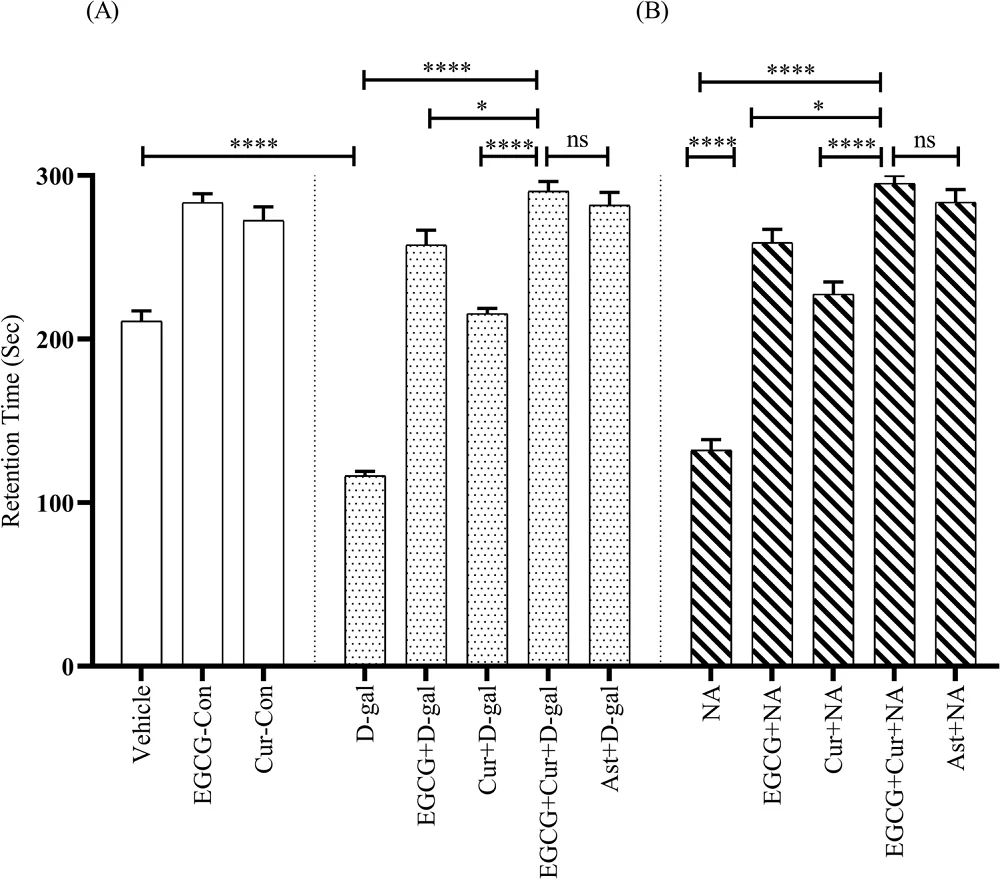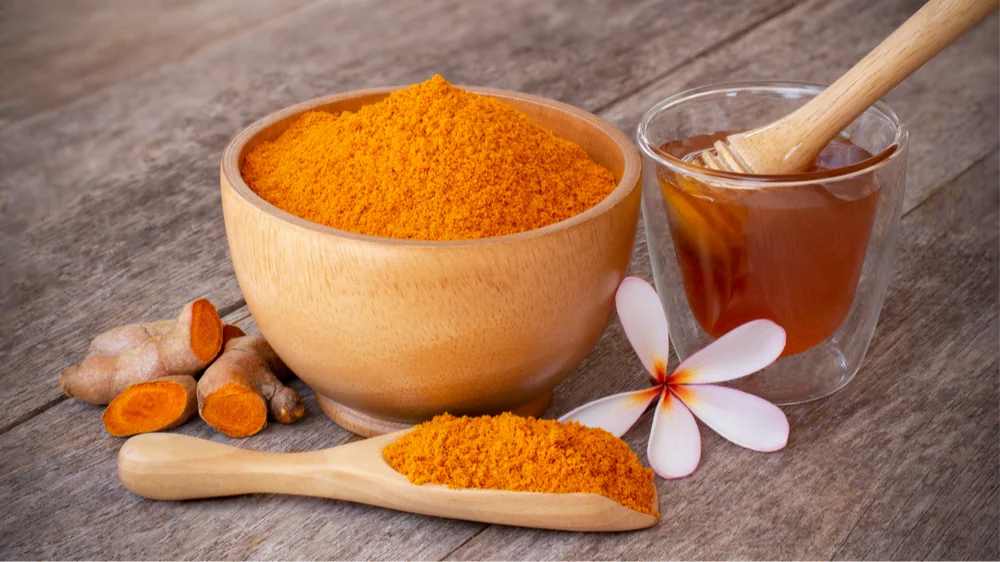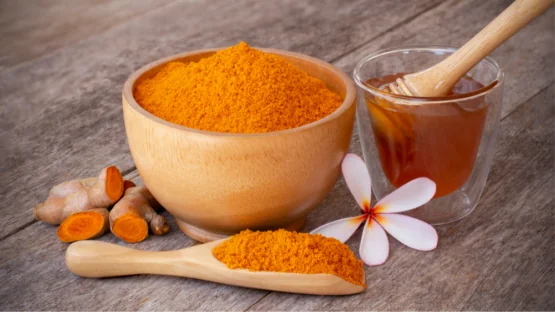Scientists have found that EGCG and curcumin, two well-known antioxidants, are effective both alone and especially in combination in a mouse model of cognitive decline induced by oxidative stress [1].
Not the usual stress
Oxidative stress results mostly from molecules called reactive oxygen species (ROS), which are byproducts of normal chemical reactions in the body. It is an aspect of aging that exerts wide-ranging adverse effects on numerous organs and tissues and is known to play a role in neurodegeneration and dementia [2].
The body produces endogenous antioxidants, the most important one being glutathione. People also consume potent antioxidants with food, including curcumin, the orange compound found in turmeric, and epigallocatechin 3 gallate (EGCG), a polyphenol that is especially abundant in green tea. Both have shown health benefits in animal and human studies [3].
What happens if we combine those two ROS-targeting compounds? This question was at the center of a new study published in Nature Scientific Reports.
The combination brings a win
The researchers used a mouse model of age-related cognitive decline induced by D-galactose (D-gal), a compound that exacerbates oxidative stress. D-gal-treated animals exhibit numerous symptoms of aging, including mitochondrial dysfunction, inflammation, and neuronal degeneration, highlighting the broad range of ROS’ effects.
Previous studies have shown that both curcumin and EGCG improve memory function in aged mice, at least partially via antioxidative pathways. However, the results of a very limited number of existing studies that considered the cumulative effects of those two molecules were inconclusive.
The researchers ran a battery of behavioral tests on several groups of mice, such as the passive avoidance task, which capitalizes on a rodent’s natural preference for darkness and its ability to learn to avoid an environment in which it has experienced an aversive stimulus. In this test, naturally aged and D-gal-treated mice showed less retention time and lower rate of freezing response, which is indicative of poorer memory.

In all tests, young mice scored highest, while mice treated with D-gal and naturally aged mice demonstrated similar deterioration of cognitive function, showing that D-gal indeed emulates age-related cognitive decline.
Both antioxidants effectively elevated memory function, including in healthy young controls. Curcumin alone was less effective than EGCG alone. However, the two molecules showed a synergistic effect, at times elevating memory function markers higher than in young healthy controls.
The researchers then measured three markers of oxidative stress: glutathione along with the crucial antioxidant enzymes superoxide dismutase and catalase. The results mirrored those of the memory tests: in naturally aged mice and mice treated with D-gal, the levels of the three markers were much lower than in healthy young controls. Both EGCG and curcumin alone were able to significantly improve them.
The more robust effect of EGCG vs curcumin was even more evident here: while the latter was not able to fully rescue the three markers’ levels, after EGCG treatment, they actually surpassed those of healthy young controls. Yet, the cumulative effect of the combination treatment was even more robust.
The third contender
Another interesting feature of this study was that the EGCG and curcumin were tested against a positive control: astaxanthin, also a powerful antioxidant. Astaxanthin is what gives salmon its pink hue and it is found mostly in seafood. However, the richest source of astaxanthin is certain algae, the same ones that help give flamingoes their majestic pink plumage. Astaxanthin alone matched the results of the combined treatment with EGCG and curcumin.
This study pitted three antioxidants and one combination treatment against each other with some interesting results, highlighting the promise of combination therapies, even if both molecules are in the same ballpark, as EGCG and curcumin are. Of course, it would be interesting to see the results of a combination that includes astaxanthin as well as studies in humans. All three molecules can be found as supplements, and while there are bioavailability issues, all three are very safe.
In the current study, we noted that combined EGCG and curcumin-treated mice showed powerful protection against the decreased activity of GSH, SOD, CAT (Fig. 6), and increasing level of AOPP, NO, and MDA (Fig. 7) in the brain compared to the monotherapy of EGCG or curcumin. Moreover, combined EGCG and curcumin were comparable to Ast, a standard antioxidant, in modulating the antioxidant level.
Literature
[1] Rahman, M. A., Shuvo, A. A., Apu, M. M. H., Bhakta, M. R., Islam, F., Rahman, M. A., … & Reza, H. M. (2023). Combination of epigallocatechin 3 gallate and curcumin improves d-galactose and normal-aging associated memory impairment in mice. Scientific Reports, 13(1), 12681.
[2] Kim, G. H., Kim, J. E., Rhie, S. J., & Yoon, S. (2015). The role of oxidative stress in neurodegenerative diseases. Experimental neurobiology, 24(4), 325.
[3] Nagle, D. G., Ferreira, D., & Zhou, Y. D. (2006). Epigallocatechin-3-gallate (EGCG): chemical and biomedical perspectives. Phytochemistry, 67(17), 1849-1855.



